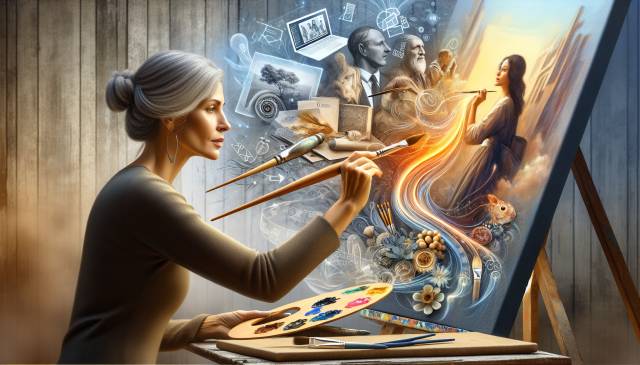
Fine arts education goes beyond the canvas or the stage; it is a pathway to self-discovery, creativity, and critical thinking. In a world dominated by technology and rapid changes, pursuing a degree in fine arts offers a unique opportunity to develop skills that are not just applicable in the arts but also in various other fields.
The Importance of Fine Arts in Education
Fine arts encompass a wide range of disciplines, including painting, sculpture, music, theater, and dance. Each of these fields contributes significantly to a well-rounded education. Here are some key reasons why fine arts education is essential:
- Enhances Creativity: Engaging with the arts fosters creativity, encouraging students to think outside the box and come up with innovative solutions.
- Improves Academic Performance: Studies have shown that students involved in fine arts tend to perform better academically across various subjects.
- Builds Confidence: Performing in front of an audience or showcasing artwork instills a sense of accomplishment and boosts self-esteem.
- Encourages Emotional Expression: Fine arts provide a platform for students to express their emotions and thoughts, promoting mental well-being.
- Develops Critical Thinking: Analyzing artworks and performances fosters critical thinking skills that are essential in all areas of life.
Diverse Career Opportunities
A degree in fine arts opens doors to various career paths, many of which are increasingly relevant in today's job market. Some potential careers include:
- Graphic Designer
- Art Director
- Musician or Composer
- Filmmaker
- Art Educator
- Curator or Gallery Manager
- Interior Designer
These roles not only allow individuals to express their creativity but also contribute to society by enhancing cultural experiences and promoting artistic literacy.
Choosing the Right Fine Arts Program
When considering a fine arts education, itâs essential to choose a program that aligns with your interests and career goals. Here are some factors to consider:
- Curriculum: Look for programs that offer a comprehensive curriculum that covers both theory and practical application.
- Faculty: Research the qualifications and experience of the faculty members, as their expertise can significantly influence your education.
- Location: Consider whether you prefer studying in an urban environment with access to galleries and performances or a more rural setting.
- Facilities: Ensure the institution has the necessary facilities and equipment for your chosen discipline.
- Internship Opportunities: Programs that offer internships can provide valuable real-world experience and networking opportunities.
Online Fine Arts Courses
With the rise of online education, aspiring artists can now access fine arts courses from prestigious institutions around the world. Online courses provide flexibility, allowing learners to study at their own pace while still receiving high-quality education. Here are some platforms where you can find online fine arts courses:
- Coursera
- edX
- Skillshare
- Udemy
- MasterClass
These platforms often feature courses taught by leading artists and educators, providing unique insights and skills that can enhance your artistic journey.
Conclusion
In conclusion, fine arts education is a vital aspect of holistic learning. It cultivates creativity, critical thinking, and emotional intelligence, preparing students for various career paths and life experiences. Whether you are interested in painting, music, or theater, pursuing a degree in fine arts can lead to a fulfilling and enriching life. With numerous online courses available, there has never been a better time to dive into the world of fine arts and explore your passions.

